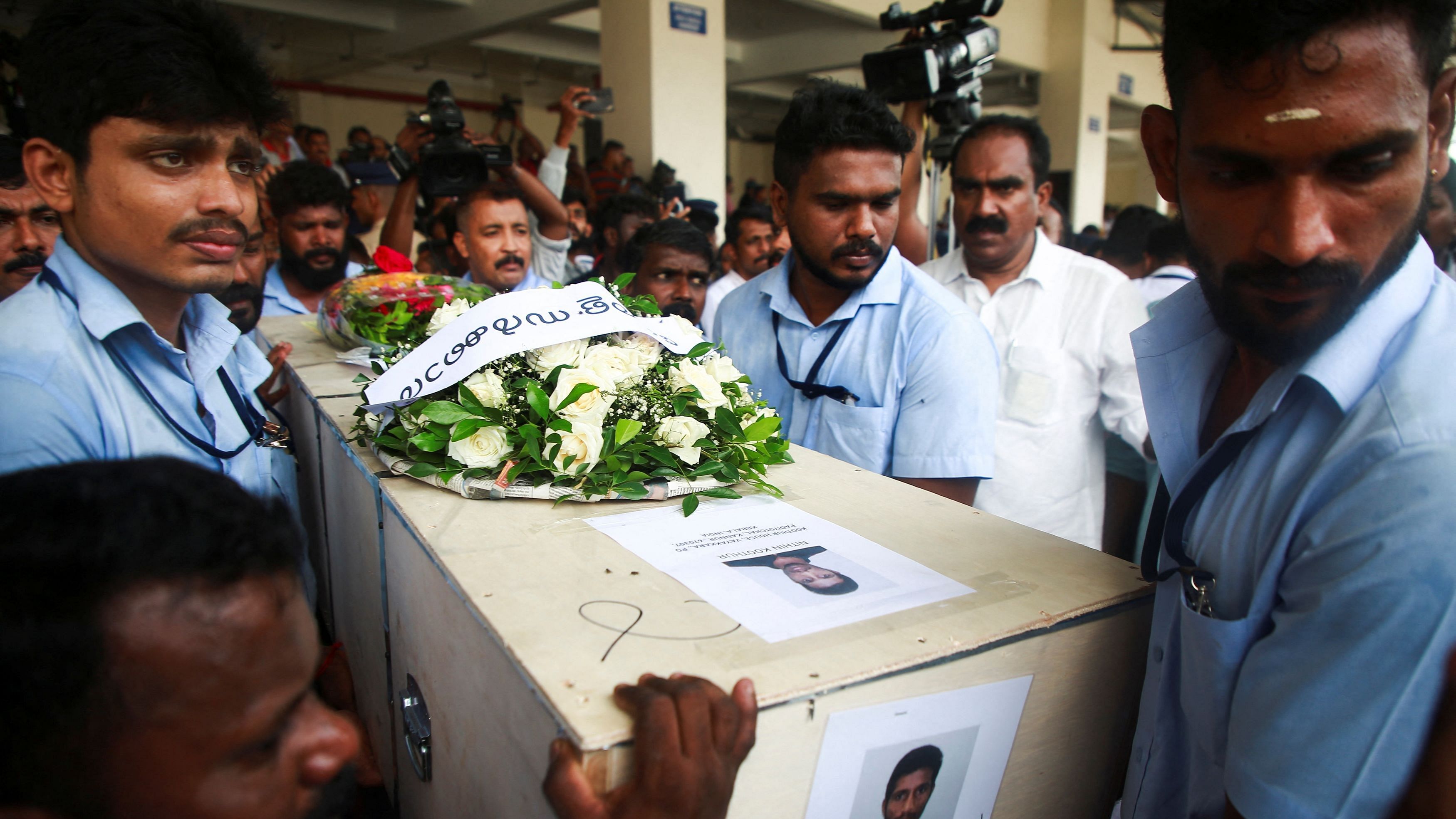
Officials carry a coffin containing the body of a victim who died during a fire that broke out in a building housing foreign workers in Kuwait, at Cochin International Airport, in Kochi on Friday.
Credit: Reuters Photo
The fire accident in Kuwait in which 45 Indians were killed is among the most serious mishaps that caused loss of Indian lives in recent times outside the country. The 45 Indians were among the 49 persons who died in the fire that engulfed an apartment that had been rented by a company to house its workers and staff. The company is also owned by an Indian. Many people have also been injured and are undergoing treatment in hospitals. The government took steps to ensure that families of the victims are provided with information and to bring the bodies back home. It has also announced compensation for them. Minister of State for External Affairs Kirtivardhan Singh has gone to Kuwait to oversee the efforts to help those affected. The governments of states to which the victims belonged, mainly Kerala, Tamil Nadu and some North Indian states, have announced similar measures.
Typically such mishaps involving large casualties happen in industrial sites or residential establishments accommodating many people. Indians constitute about 20% of Kuwait’s population and about 30% of its workforce. So it was natural that the mishap involved so many Indian lives. The accident draws attention to the living conditions of Indians abroad and the risks faced by them, especially in Gulf countries where a large number of them live and work. According to reports, more than 1,400 Indians died in Kuwait in the last two years. Not all of them may have died in accidents. There are thousands of complaints from Indians working in all Gulf countries about issues related to work. These also include issues like living in unsafe conditions in violation of laws. Complaints of widespread ill-treatment and violation of human rights of migrant workers had arisen during construction of infrastructure for the 2022 FIFA world cup in Qatar. Some of the problems have not been addressed or resolved.
The government and Indian missions abroad will need to be vigilant about the welfare of Indians in other countries. Some countries may have inadequate legal protection for the rights and needs of workers. Implementation may be slack in others. Indian missions will have to work with authorities in other countries to ensure that the interests of Indian workers are protected and their lives and properties are not at risk. More and more Indians will go abroad in the coming years for work and work-related needs as the country’s population, especially the working population, is growing and many other countries are finding their populations and workforces shrinking. Indians desperate for jobs are even going to conflict zones in search of livelihood. On June 11, the government announced the death of two more Indians, who were working as support staff for the Russian Army, in Ukraine. The deaths of Indians in distant lands should remind the just re-elected Narendra Modi government that in its third term, it should focus on creating jobs in India so that Indians do not have to go abroad, and suffer abuse and sub-standard working conditions or even lose lives. When they do go abroad, the government has the responsibility to ensure their welfare.